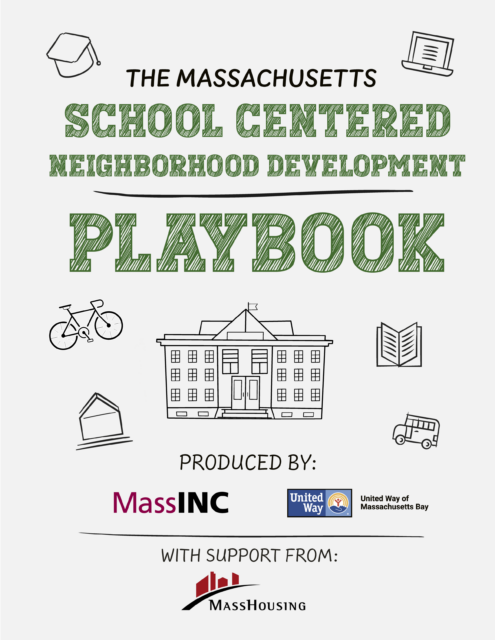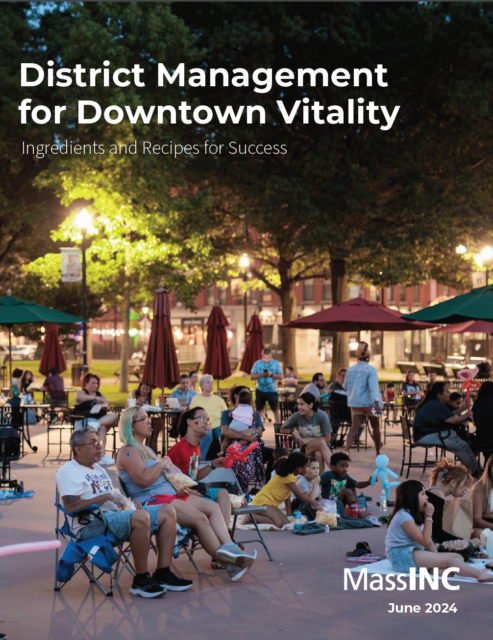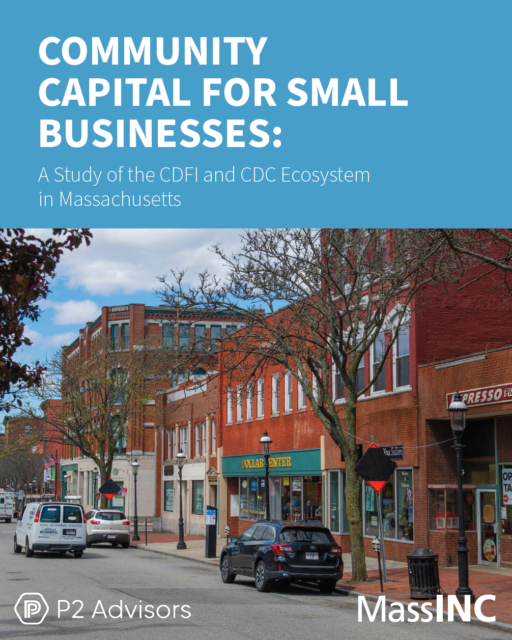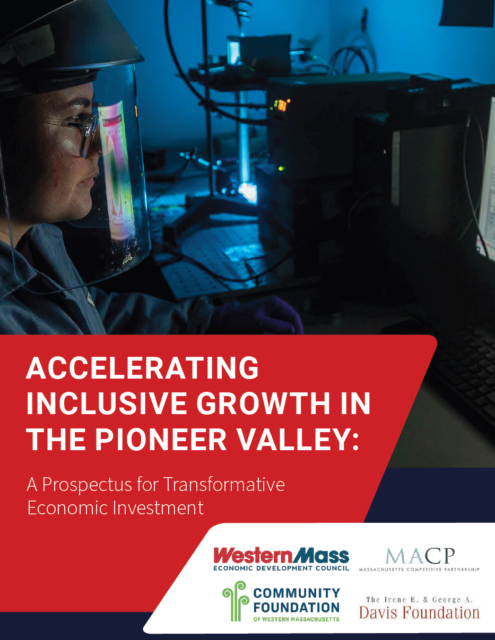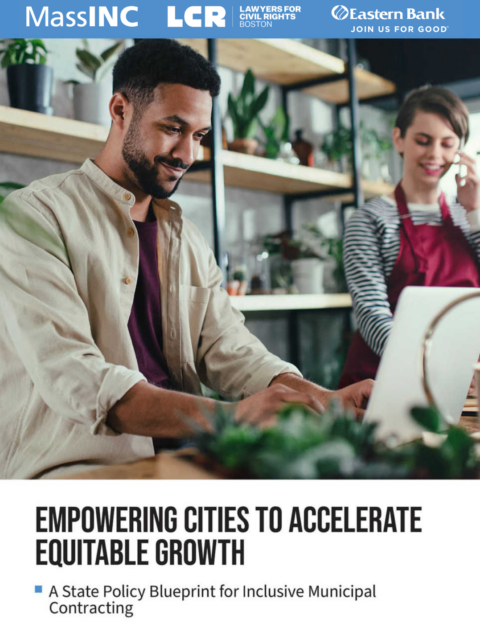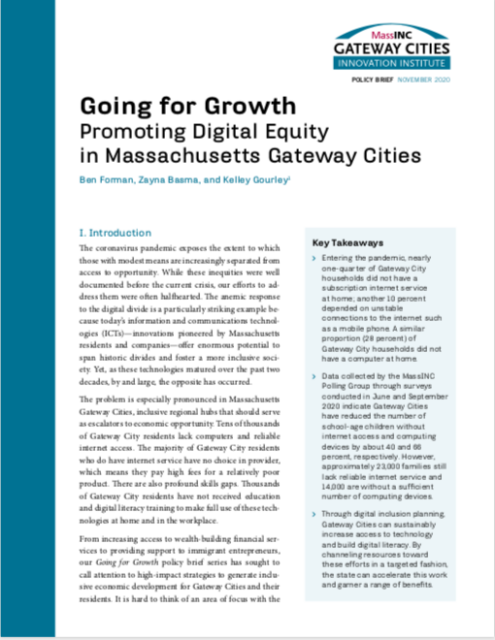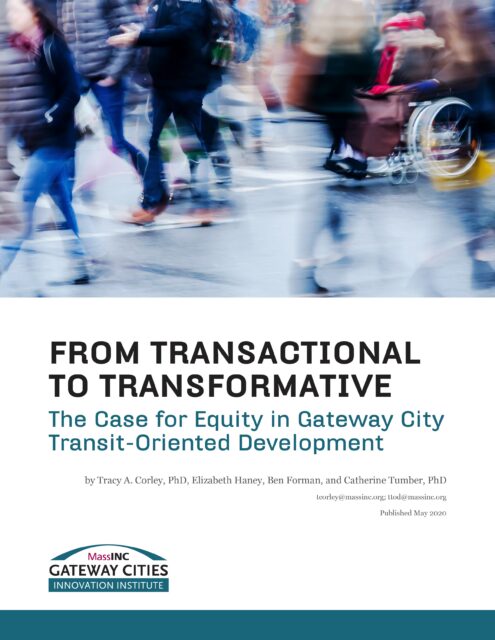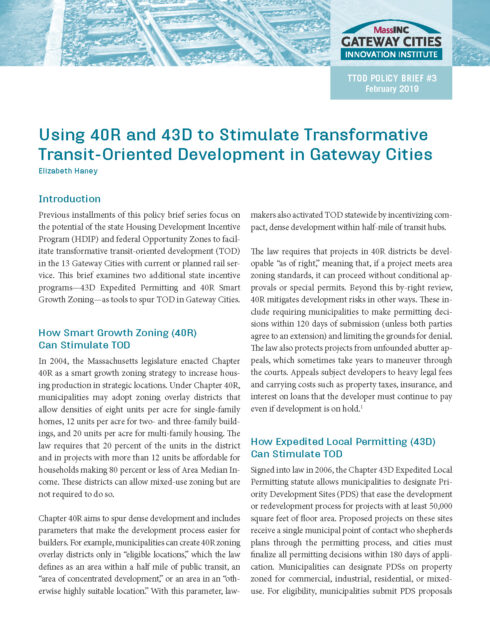Economic Development Research
Browse research releases from the MassINC Policy Center.
-
Constructing the Future: Strategies to Help Massachusetts Meet Its Clean Energy and Housing Goals
June 17, 2025
- Construction output has declined in recent years. Prompt action to stimulate demand is necessary to sustain this critical workforce and preserve long-term industry capacity.
- Assuming continued economic growth, scaling up the training system to meet workforce needs for housing and clean energy should be an attainable goal.
- Recent progress in racial, ethnic, and gender diversity presents an opportunity to expand the industry’s future labor pool.
- Reducing construction costs while maintaining competitive, family-sustaining wages will require meaningful gains in productivity.
-
Opening the Doors to the Jobs of the Future
Expanding Early College access and strengthening career-connected learning are critical to ensuring Massachusetts maintains a competitive, skilled workforce, and this report outlines four key objectives to guide the state's expansion strategy.
March 3, 2025
- Massachusetts must significantly expand Early College programs to reach more low-income students, as current enrollment remains too limited to make a substantial impact. The state should prioritize high-potential high schools and utilize hybrid or online learning models to ensure accessibility, particularly for students in rural areas.
- Current Early College programs lack structured connections to high-demand industries like health and STEM. A more robust program should integrate specialized advising, career development experiences, and credit accumulation targets, while also aligning Early College with Innovation and Career Pathway (ICP) programs.
- Expanding Early College to middle-income students can create more diverse learning environments, strengthen urban schools, and support high school redesign in smaller districts. Targeted strategies include regional partnerships, urban magnet schools, and enrollment goals that promote integration in Boston and the Gateway Cities.
- Sustainable Early College expansion will require clear governance structures, accountability measures, and administrative capacity. Some necessary policy changes will need to be addressed through board decisions, legislation, and budget appropriations.
-
The Massachusetts School Centered Neighborhood Development Playbook
Neighborhood vitality and public school performance are closely linked, yet education improvement efforts are generally siloed from planning, housing, and community development.
October 9, 2024
- Growing education reform movements and an influx of housing resources provide a window to embrace coordinated planning efforts at the neighborhood level
- The funding of backbone organizations and the implementation of the Community School model are both effective ways to work across silos and create mixed-income neighborhoods and schools
-
District Management for Downtown Vitality
Commercial districts need a high volume of foot traffic to support thriving small businesses. Supplemental district management services can dramatically increase this pedestrian activity.
June 27, 2024
- District management organizations (DMOs) encourage thriving local commercial districts for small businesses to flourish.
- DMOs require an annual operating budget of between $200,000 – $700,000 depending on the district size. Increased state funding could ease the operating gap DMOs typically face.
- Between now and 2030, cohorts of 5 large DMOs could be supported each year starting at $500,000 and peaking at $5.5 million annually. These DMOs could general $13 million annually for local revitalization.
-
Community Capital for Small Businesses
A Study of the CDFI and CDC Ecosystem in Massachusetts
June 27, 2024
- Community development finance institutions (CDFIs) disproportionately serve the smallest and youngest businesses and those owned by underrepresented groups.
- Only 23% of CDFIs provide financing to small businesses. Most funding from CDFIs and community development corporations (CDCs) goes to the real estate sector.
- 32 states have CDFI funding programs, providing a model for how MA could establish stable and sustainable lending opportunities for small businesses.
-
Accelerating Inclusive Growth in the Pioneer Valley
A Prospectus for Transformative Economic Investment
March 13, 2024
- The Pioneer Valley faces economic challenges including a lack of growing industry clusters and underperforming research and development
- Strong assets in the sectors of food science, advanced materials, and clean energy provide an opportunity for state investments to leverage these assets
-
Empowering Cities to Accelerate Equitable Growth
A State Policy Blueprint for Inclusive Municipal Contracting
July 12, 2022
-
Going for Growth
Exploring how efforts to increase digital inclusion can yield large benefits for Gateway Cities, their residents, and similar cities.
December 1, 2020
-
From Transactional to Transformative
The Case for Equity in Gateway City Transit-Oriented Development
May 18, 2020


